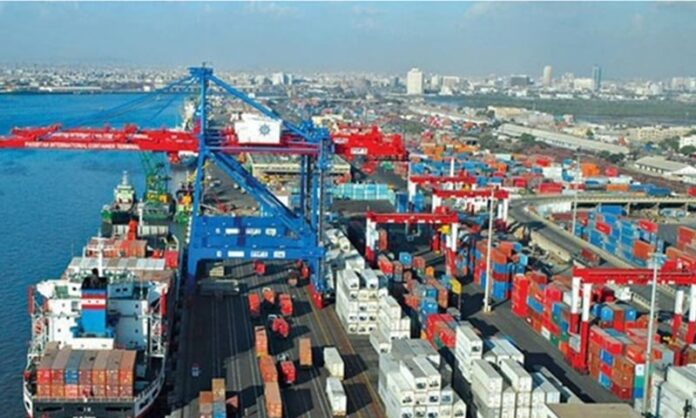ISLAMABAD: The Pakistan Tehreek-e-Insaf (PTI) government is all set to reconcile exports’ figures as it sees discrepancies in the calculation of various government bodies.
The Ministry of Commerce, which is apparently not able to show considerable progress in exports, has decided to include the exports of special economic zones/export processing zones in the final figures of monthly exports, an attempt which may help the ministry show more increases in foreign trade.
Addressing a press conference in Islamabad on Tuesday, Prime Minister’s Adviser on Commerce Abdul Razak Dawood confirmed that there were discrepancies in the exports data.
According to the State Bank of Pakistan and WeBoc, exports posted a growth of 11.5pc during the first quarter of the current fiscal year but the provisional figures released by the Pakistan Bureau of Statistics (PBS) showed an increase of 2.75pc for the same period.
Referring to the earlier meetings held with FBR, SBP and PBS, Dawood said it was observed that the export figures of SEZs were not included in the total figures compiled and released by the PBS. According to officials, he added, there was a discrepancy of $300 million in the export figures of September 2019.
“From next month onwards, the overall export figures will include those of export processing zones,” Dawood said, adding that there was a difference of $1.20 billion in total figures of SBP and PBS with regard to the last financial year.
According to the commerce ministry officials, the ministry has successfully reduced the trade deficit by 35pc, from $8.79 billion to $5.72 billion, in the first quarter of 2019-20. Only in September 2019, the trade deficit improved 24pc as compared to the corresponding month of last year.
They said the import compression measures were deployed successfully, owing to which the imports were brought down to $11.24 billion in July-September 2019-20, from $14.16 billion in July-September 2018-19.
According to the provisional data, the main export commodities during the first quarter included rice ($471.1 million, 50.1pc growth), men’s garments ($886.1 million, 7.3pc growth), cotton t-shirts ($123 million, 57.6pc growth), copper and copper products ($91.8 million, 144.7pc growth), meat ($71.6 million, 53.8pc growth), medical instruments ($108.1 million, 20.3pc growth), leather apparel ($159.7million, 8.8pc growth), fruits and vegetables ($143.2 million, 17.7pc growth), fish and fish products ($79.2 million, 8.7pc).
Pakistan has witnessed export growth in traditional and nontraditional markets. The country’s exports went up in Saudi Arabia (51pc), UAE (23pc), Netherlands (17pc), and China (14pc). Pakistan’s exports to Africa also went up in terms of value and quantity.
Similarly, the import commodities that registered a decline included Iron and steel (-23.5pc), fertilisers (-62.5pc), palm oil (-25.9pc), plastics and articles of plastic (-16.8pc) and soya beans (-55.8pc).




